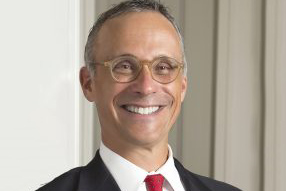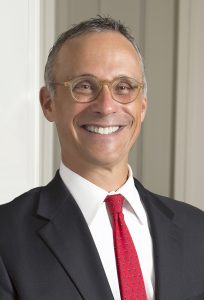President Roth Defends Liberal Education in Op-Ed, Radio Interview


Following a visit to China Peking University–Shenzhen, which has decided to start an undergraduate liberal arts college, President Michael Roth reflects in an op-ed in The Washington Post on why commitment to a liberal education is more important today than ever. He contends, “This is a fragile time for liberal education, making commitment to it all the more urgent.”
Keeping in mind John Dewey, the pragmatist philosopher who visited China in 1919 to talk about education, Roth focuses on “two dangers and two possibilities.” He warns of the “danger of narrowing specialization” at a time when “we need more academics who can facilitate conversations between the sciences and the humanistic disciplines.” With an eye to the current political climate in the U.S., he cautions against the “danger of popular parochialism”:
It is especially urgent to advocate effectively for a broadly based pragmatic liberal education when confronted by ignorant authoritarians who reject inquiry in favor of fear mongering and prejudice. A broad education with a sense of history and cultural possibilities arms citizens against manipulation and allows them to see beyond allegiance to their own.
Undergraduate education – be it in China or the United States – should promote intellectual diversity in such ways that students are inspired to grapple with ideas that they never would have considered on their own. At Wesleyan University, creating more access for low-income students and military veterans has been an important part of this process. Groups like these have been historically under-represented on our campus, but just having diverse groups is not enough. We must also devise programs to make these groups more likely to engage with one another, bursting protective bubbles of ideas that lead some campus radicals and free speech absolutists to have in common mostly a commitment to smug self-righteousness.
Roth concludes by discussing the “possibilities of open and reliable communication” among academic researchers in the sciences and humanities, and the importance of creating a “cosmopolitan” culture of openness and curiosity on campuses.
Also, in an interview with WBUR public radio, Roth defended the value of a broad liberal education today, at a time when many are calling for a narrower, more instrumental education.
“On our campuses, we have an academic culture that’s pretty much tilted to the left, in which people get increasingly used to talking to other people who agree with them already… In order to have a real education that’s broad and deep and challenges your own assumptions, you’ve got to talk to people who don’t agree with you. And you have to learn how to tolerate ambiguity and disagreement, and not just learn how to defend yourself and attack all people who don’t agree with you. The current climate is one in which people are very good at yelling at each other or fabricating tweets that make someone else feel really stupid, but that’s not the same as listening to someone else who has a different point of view and learning from that person.”
Roth said that Wesleyan has taken steps in the last five years to ensure diverse viewpoints exist among its student body, its faculty and visiting speakers.

